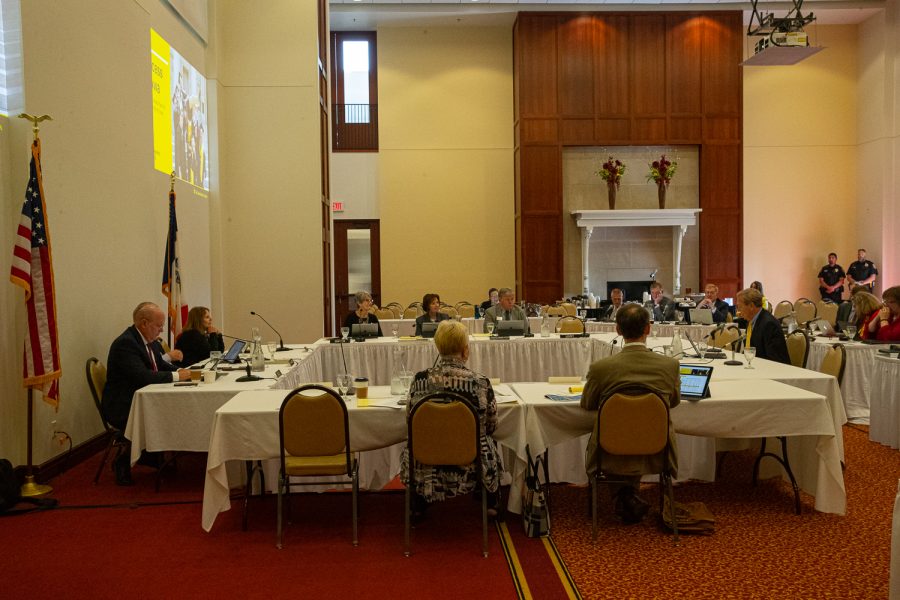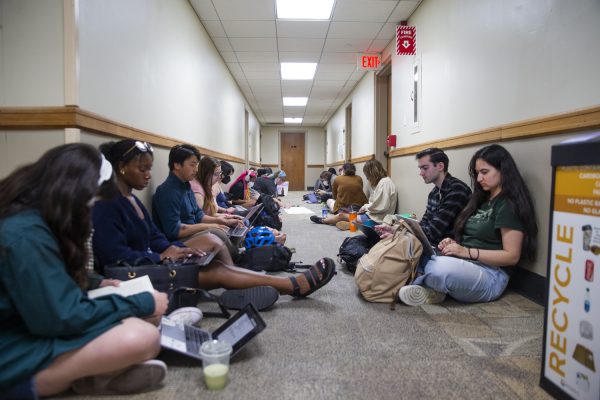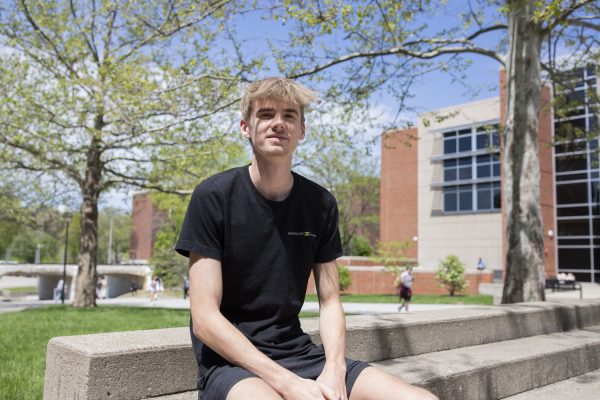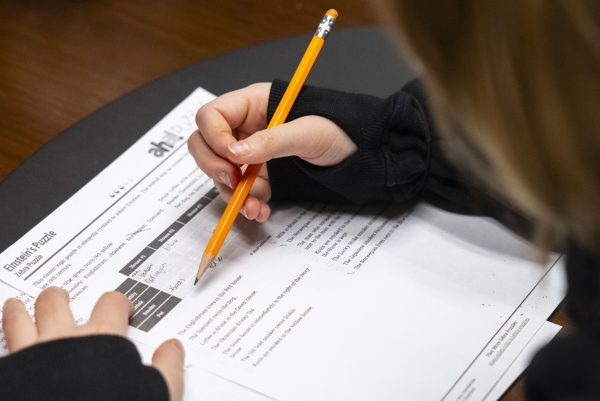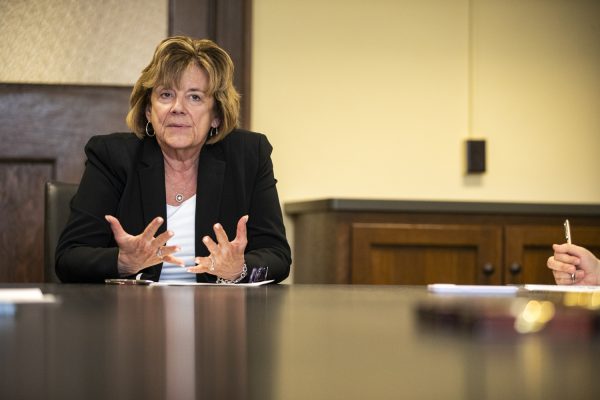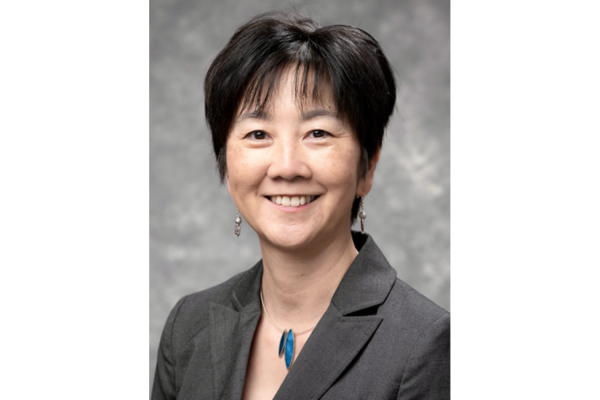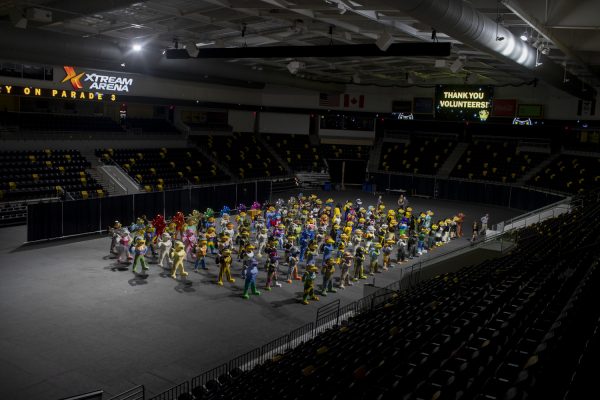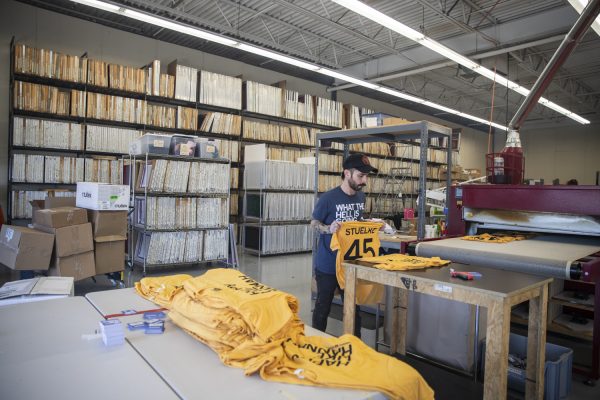State board: Regents engaged in bad-faith negotiations with COGS
The state Board of Regents was ordered to cease and desist future bad-faith negotiations following the Iowa Public Employee Relations Board’s decision.
University of Iowa President Bruce Harreld addresses the Board of Regents during a meeting at the Iowa State Alumni Center in Ames, Iowa, on Thursday, June 6, 2019.
June 18, 2019
The Iowa Public Employee Relations Board delivered a decision June 14 that the state Board of Regents failed to negotiate in good faith with two unions representing public-sector employees at the University of Iowa and University of Northern Iowa.
The cases in question, regarding UI’s graduate-employee union Campaign to Organize Graduate Students and UNI’s United Faculty, arose as a collective-bargaining bill affecting contract negotiations for Iowa’s public-sector employees moved through the state Legislature.
According to the panel’s decision, the regents failed to “actively and substantively discuss” the 2017-19 contract around the time of the law’s passage and demonstrated “a lack of commitment to the process” from January until the bill was signed into law that February.
“The anticipated legislation is not justification for the [regents’] delays and refusal to engage in the collective-bargaining process,” the panel wrote. “A party cannot unilaterally refuse to negotiate or unreasonably delay negotiations because legislation may be forthcoming that is conducive to its objectives.”
The proposal, fast-tracked to passage by GOP lawmakers, was met with protests and later challenged in the courts. In a narrow 4-3 Iowa Supreme Court ruling in May, justices ruled the plaintiffs’ complaints did not “justify judicial intervention” because they did not concern an alleged violation of fundamental rights.
By the end of 2016, the regents and COGS had not reached an agreement on the 2017-19 contract. Both parties agreed to participate in a mediation followed by a final arbitration in January 2017.
COGS filed a complaint Feb. 6, 2017 — the day before state lawmakers introduced the bill governing collective-bargaining laws — alleging the regents had refused to partake in good-faith bargaining over the 2017-19 contract.
Changes to Chapter 20, the section of Iowa Code pertaining to public unions, were anticipated early in the legislative session. At the beginning of 2017, both parties became aware of potential law changes.
COGS representatives attempted to set a meeting date in which a final settlement could be reached before the March 15 deadline.
RELATED: COGS, Board of Regents kick off contract negotiations
Michael Galloway, the attorney representing the regents in the negotiations, wrote in a Jan. 31, 2017 email to Nate Willems, the attorney representing COGS, that negotiations could not move forward pending the Legislature’s changes to Chapter 20, according to the board’s decision documents.
Changes to Iowa Code Chapter 20 determined that the only item employers are required to negotiate with public employees is “base wages.” Both parties in a negotiation must agree to put other items on the bargaining table.
COGS originally sought to negotiate on proposals including health care, paid leave, and other nonwage-related items, which the regents as a public employer would no longer be required to negotiate under the new collective-bargaining law. Additionally, the precise definition of “base wages” was unclear at the time of negotiation.
The regents and COGS were forced to restart negotiations after then-Gov. Terry Branstad signed off on the bill Feb. 17. A final arbitration decision was reached March 14, 2017.
Per the governor-appointed board’s decision, the regents are ordered to cease and desist from further violations of the Public Employment Relations Act, which governs how public employers negotiate with employees. Notices regarding the board’s ruling will be posted at both UI and UNI campuses in the fall.
Brock Ascher, electronic media assistant for the regents, wrote in an email to The Daily Iowan that the regents would not comment on the board’s decision as “they are subject to potential appeal by either party.”
COGS did not respond to requests for comment on the decision by the time of publication.



